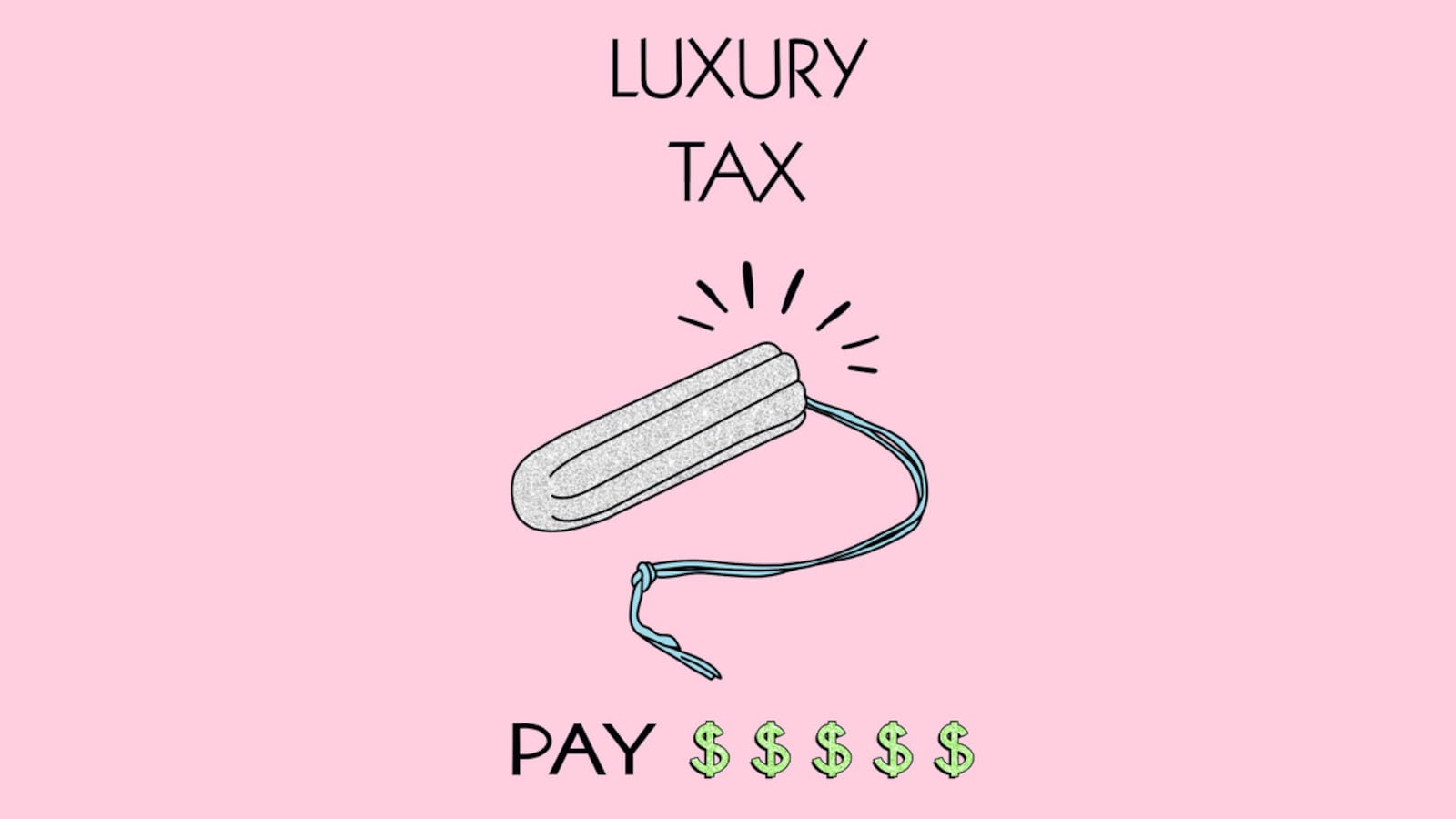At any given time, 800 million people around the world have their period, and an average woman spends 3,000 days of her life menstruating. Even though some people are not comfortable talking about menstruation, the cost of menstrual hygiene products, and other costs associated with managing menstruation, are unaffordable to many. Being unable to afford products such as tampons, pads or liners to manage menstrual bleeding reinforces gender inequalities. The lack of access to sanitary products is a major barrier for millions of women and girls worldwide to reach their social and economic potential.
Ensuring affordable menstrual health should be considered a major public health and human rights issue. It is a matter of dignity for many low-income menstruators. It negatively impacts access to public and private spaces, gender equality, and social justice. Too many women at some stage in their life will have sacrificed school, work, and socializing because they can’t afford to manage their periods safely and with dignity, and this is disproportionately affecting their life chances. Women also lose pay and education due to missing school and work due to period pain and other menstrual health problems.
These women are living in period poverty—a reality made worse by stigma.
One in 10 women aged 14 to 21 in the United Kingdom, over half of teenage girls in sub-Saharan Africa, and 70 percent of women in India cannot afford sanitary pads. Even in the United States, a recent study found that two-thirds of low-income women in St. Louis, Missouri, couldn’t afford menstrual products, instead using cloth, rags, or toilet paper taken from public bathrooms.
Shrouded in ignorance and misinformation, periods are taboo topics, not to be discussed openly, especially among men. Because men make up the majority of the world’s leaders, including health leadership, menstrual health is left out of health policies, plans and budgets. In this very concrete way, the imbalance of political power between genders in decision-making leads to inequalities in access to education, and wealth. It can be lethal, when women and girls living in poverty must resort to reuse old products, newspapers, toilet paper, socks, rags, leaves, mud, and such other health-threatening materials to manage their flow.
One example of how period poverty is ultimately a symptom of systemic discrimination against women is the so called “tampon tax” that exists in most countries, and which classifies menstrual products as non-essential luxuries, while exempting other hygiene products such as deodorants and razors—illustrating how deeply gendered legal structures such as the ‘neutral’ tax system actually are.
In many U.S. States, items such as dandruff shampoo, or drugs to treat hair loss or erectile dysfunction are tax-exempt, yet 30 states still tax tampons and pads, refusing to classify them as “necessities for life.”
Ultimately, the tampon tax is both a form of gender discrimination and a violation of human rights norms. Slowly but surely, more and more countries are making progress. Thanks to women’s organizing and female political leaders putting a spotlight on women’s health needs, governments are increasingly devising policies to make sanitary products more accessible. Not only through tax reduction, but also other measures such as subsidies or free distribution. Scotland recently became the first country in the world to ensure that tampons and sanitary pads are free for anyone who needs them. In 2017, Nepal began distributing free sanitary pads in schools across the country with the hope of reducing school absenteeism. And in Nigeria, the federal government classified locally produced sanitary pads as one of 20 basic food items exempted from a new Valued Added Tax (VAT) increase. In 2018 Colombia removed all taxes from pads and tampons, extending the exemption to menstrual cups this April. In 2004, Kenya was the first nation to stop taxing menstrual products. Canada ended the tax in 2015; Australia, India, and Malaysia did the same in 2018; and the United Kingdom became the latest country to do so earlier this year. In just the last year alone, five U.S. states—Ohio, Rhode Island, Utah, Washington, and California—have ended their tax on tampons.
Making period products affordable is not only a necessary step towards gender equality but a crucial step in breaking down the barriers that stigmatize menstruation. It is a recognition that women’s biological processes will no longer hinder their education and future prospects, thus contributing to the fight for full gender equality.
This Menstrual Hygiene Day we call on governments around the world to tackle period poverty head-on. They should eliminate any bias in tax or other legislation which are contributing to gender discrimination. Governments should consider eliminating the tampon tax or applying exceptions or 0-percent VAT rates to these essential basic goods. They should also support the movements to promote widespread sanitary supply availability and consider providing complementary feminine hygienic supplies in certain spaces such as schools, homeless shelters and for women from low-income backgrounds, with the aim of eradicating period poverty. These measures would have immeasurable benefits to women and would be a major step for gender equality.
Periods may only happen to part of the population, but ensuring safe, hygienic, and dignified menstruation benefits all of us.







